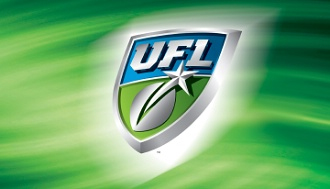In the past couple of days, many football players have been informed that training camp for the United Football League (UFL) will be suspended for 30 days. While training camp will be shortened, the UFL had originally stated that the move will not affect the UFL season schedule, including the number of games played by each of the league’s 5 teams. However, yesterday the UFL said that games will be pushed back from August 2011 to September 2011. The news certainly raises quite a few eyebrows (as it should), and at least makes me wonder how much longer the fledgling league will survive.
As my friend Brian Finkel noted yesterday, I went on a Tweeting rampage after I let the UFL news truly sink in. My main goal was to alert agents and players that there could potentially be negative consequences of locking into a UFL Standard Player Contract.
The issue is that there are not many alternatives out there for professional football players who cannot quite grab the attention of NFL decision makers. As Martin Fischman discussed on May 19, 2011, the Canadian Football League and Arena Football League, in addition to the UFL, provide options for agents trying to find the best opportunities for their clients. But as Fischman correctly stated, as an agent you have a fiduciary duty to act in the best interests of your clients. Consider advising your football clients of the following items before they sign a UFL Standard Player Contract.
- The UFL lost $45-50 million in 2010 in addition to losing $32 million in 2009, and has owed millions of dollars to creditors in the past [Las Vegas Review-Journal].
- Mark Cuban is one of those creditors, who filed a federal lawsuit to get back his $5 million loan [Dallas Observer].
- The UFL could not even pay off its medical bills from player physicals, radiology, and an advisor fee [First Coast News].
- And even agents fought long and hard to gather their agent fees which were due to them [SAB].
The list is not intended to scare any agents from giving their clients the option of playing in the UFL. In fact, if the UFL is able to play out a full season, whether it suffers financially or not, it remains as a great platform for professional athletes to show off their skill. The purpose of the list, and this post, is to stress providing this type of information to clients prior to them signing a binding contract. As long as you and they understand the situation they could be getting themselves into, they have no one to blame if things do not go according to plan.

